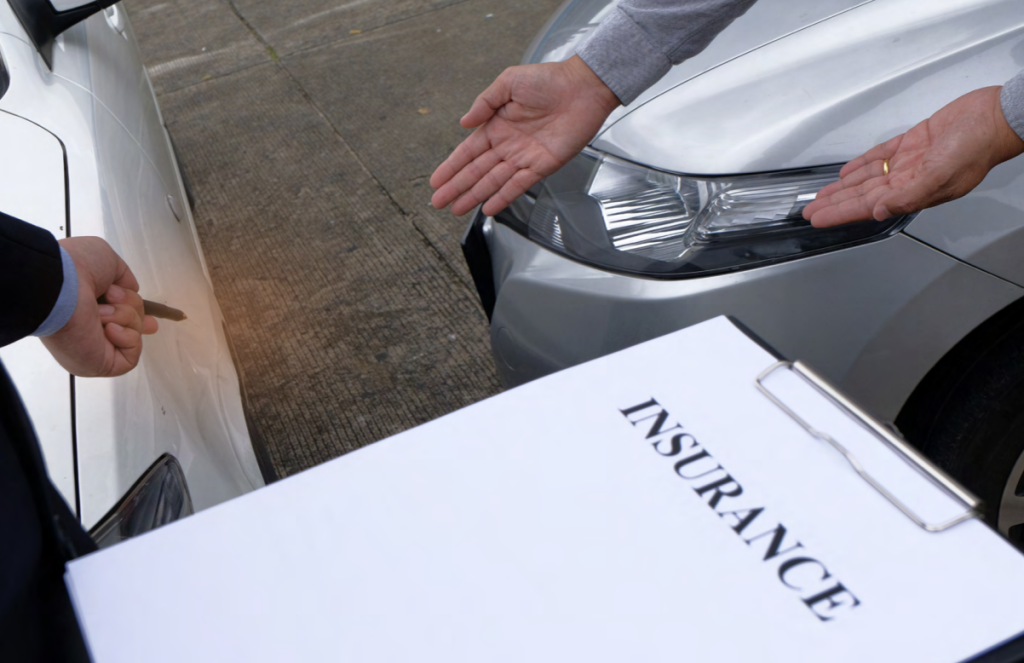After a car accident, most people expect the at-fault driver’s insurance company to do the right thing. But in reality, many insurers follow a strategy often called “Delay, Deny, Defend” — making it harder for you to get the compensation you need and deserve.
At Ron Meyers and Associates, we’ve seen firsthand how insurance companies handle catastrophic injury claims. If you’ve received a lowball offer, been ignored, or felt pressured to settle quickly, you’re not alone — and you have options.
Here’s a closer look at the most common insurance tactics in Washington personal injury cases, how to respond to them, and when to involve legal help.
Tactic 1: The Quick (and Low) Settlement Offer
Soon after the vehicle crash — sometimes before you’ve finished treatment — you may get a settlement offer that sounds tempting. But it’s often a fraction of what your claim is worth.
This is a classic tactic: the insurance lowball offer. They’re hoping you’ll take the cash before you realize how serious your injuries are.
How to respond:
Never accept a settlement without understanding the long-term value of your claim. Once you accept, you can’t reopen the case — even if new medical issues appear later. Talk to an attorney before signing anything.
Tactic 2: Delaying Communication or Payment
Some insurers stall the process to wear you down. They may:
- Take weeks to return calls or emails
- Ask for paperwork you’ve already submitted
- Tell you your claim is under review — indefinitely
This is part of the “Delay, Deny, Defend” playbook. They know the longer you wait, the more likely you are to give up or accept less.
How to respond:
Document every attempt to contact the insurer. If delays continue, your attorney can apply pressure through formal legal channels, or even escalate to litigation if needed.
Tactic 3: Denying Liability Without Just Cause
In some cases, the insurance company may deny the car accident claim outright — even when their policyholder clearly caused the accident. They may say:
- “You were partially at fault”
- “There’s not enough evidence”
- “We don’t accept liability for this incident”
These denials are often designed to shift blame or avoid a payout.
How to respond:
Work with an attorney who can gather evidence, interview witnesses, and consult experts to build a strong counterclaim. Don’t assume a denial is the final word.
Tactic 4: Demanding Broad Medical Authorizations
Insurers sometimes ask you to sign overly broad medical release forms, claiming they need your records to evaluate your injuries. In reality, they may be looking for unrelated medical history to use against you.
This is especially common in serious injury cases where long-term damages are at stake.
How to respond:
Be cautious. You are not required to give blanket access to your entire medical history. A lawyer can help you respond to a request for broad authorizations and ensure only relevant records are disclosed.
Tactic 5: Assigning Separate Adjusters to Create Confusion
In Washington, it’s common for property damage and bodily injury claims to be handled by different adjusters. This division can lead to mixed messages, delays, and conflicting strategies.
How to respond:
Keep detailed records of who you spoke to, when, and about what. An attorney can manage all communication with both adjusters and make sure your rights are protected at every stage.
Tactic 6: Pressuring You to Settle Before Full Recovery
If you’ve been seriously injured, it can take months (or longer) to fully understand your medical prognosis. Insurance companies know this, and they may try to close your claim early — before you realize how much treatment, time off work, or future care you’ll need.
How to respond:
Don’t settle while you’re still being treated or don’t have a long-term care plan. If your injuries are catastrophic or unclear, your attorney can delay settlement until your doctors can provide a full picture of your future needs.
How to Counter a Low Settlement in Washington
If you’ve already received a low offer from an insurer after being injured in a car crash, here are your next steps:
- Don’t respond emotionally. Keep communication professional and polite.
- Gather documentation. Collect medical records, wage loss info, and treatment plans.
- Get legal advice. A lawyer can calculate your claim’s real value and negotiate for more.
Sometimes, simply having an attorney respond on your behalf can trigger a more serious offer from the insurance company.
Get Help With Olympia Claim Negotiation and Advocacy
Insurance companies have teams of adjusters and lawyers — and their goal is to protect profits. If you’re facing delay, denial, or pressure to accept a low offer, you don’t have to go it alone.
At Ron Meyers and Associates, we provide skilled, compassionate support throughout the Olympia car accident injury claim negotiation process. We’ll protect your rights, handle the paperwork, and fight for a settlement that reflects the true cost of your injuries.
Contact Ron Meyers and Associates for a free consultation.
FAQ: Dealing With Insurance After a Car Accident in Washington
How do I respond to a low settlement offer in Washington?
Don’t accept or reject it right away. Document your damages and speak with a lawyer who can negotiate for a fair amount based on your full losses.
What does “Delay, Deny, Defend” mean?
It’s a strategy used by some insurers to avoid paying claims. They stall communication, reject valid claims, or fight payouts until you give up or accept less than you deserve.
Should I sign the insurance company’s medical authorization?
Not without reviewing it first. Broad authorizations may give insurers access to unrelated records they can use to minimize your injury claim.
Can I still get help if I already spoke to the insurance company?
Yes. Even if you’ve already started the claim process, a personal injury attorney can take over communication, correct mistakes, and help improve the outcome.









